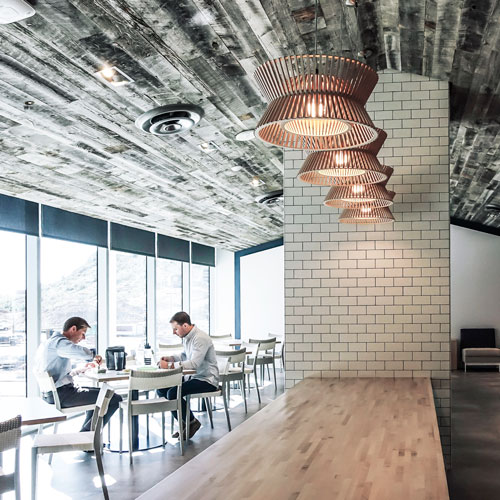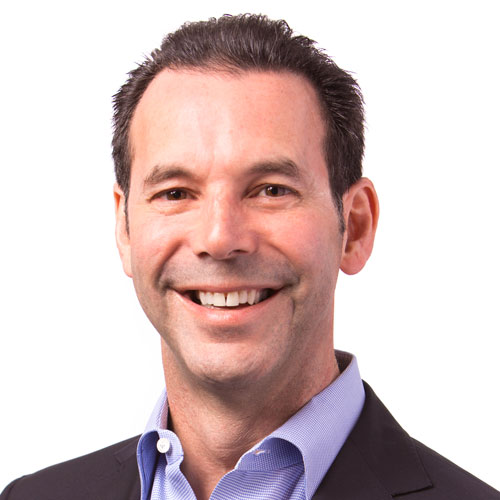In the 21st century, a college student’s academic experience is less likely to take place exclusively in a brick-and-mortar setting. At the same time, a steady erosion of public-sector support has made it more difficult for many students to get a quality education, despite the accessibility offered by modern technology.
That’s where private businesses are stepping in, supporting student access, and enhancing success by recognizing that the future requires a highly-educated workforce. Students will require a different approach to higher education, one that adapts to their modern needs and expectations by leveraging technology, mobility, and on-demand access. In other words, they’ll need resources available to them wherever and whenever they are ready to learn.
One company providing these resources is Chegg. Headquartered in Santa Clara, California, Chegg began as an online textbook rental company that now derives the majority of its revenue from digital learning services. These include live online and on-demand tutoring from instructors, online homework help, expert Q&A sessions, writing assistance, citation tools, test prep, a searchable internship database, and even career-placement services. To this day, more than 1.5 million students subscribe to Chegg’s digital learning services and are accessing the company’s resources year-round.
Denise Helm, director of workplace services, characterizes Chegg’s evolution as “disrupting the way that students learn.” Part of this disruption is also her company’s student-first, interconnected learning platform.
“Why do students go to college? For a variety of reasons, but the vast majority of them want to improve their economic opportunities and emerge from their studies with a meaningful career and first job,” Helm says. “That’s the ultimate outcome we are looking to facilitate for students. And we do this by making their journey through higher education more affordable, more accessible, and more successful.”
Prior to starting at Chegg, Helm’s background was in start-ups, and she later served as a consultant. It was in that latter role that she met the company’s leadership in 2010. She immediately became intrigued by the vision and work culture she witnessed at Chegg’s corporate center in Santa Clara.
Helm oversees many traditional areas that come with managing a company’s real estate portfolio. But, she makes sure to approach the task in an unconventional way.
“My role isn’t simply to serve as a typical manager of our portfolio of real estate, although that’s certainly part of it,” she says. “In many ways, I am a culture builder first and foremost.” She emphasizes that in her role overseeing workplace services not only in the United States, but also in offices around the globe as she strives to embody the essence of the Santa Clara headquarters.
It isn’t just a matter of adopting an open floor plan. It’s thinking about how each space itself can reflect Chegg’s industry and mission. Helm aims for the physical details of Chegg’s facilities to represent different aspects of student life, from bunk beds in the Santa Clara office to employees being encouraged to display apparel from their alma mater on the walls.
“When you enter our space, it should be immediately apparent that we are a fun and collaborative team, all of whom have embraced our own inner student,” Helm says. “I ensure that the office has flexibility, so there are lots of work-area choices for employees—assigned space, private settings, soft seating, lounge areas—and fun elements such as ping-pong tables, hammocks, a large-scale chessboard, foosball, pool tables, etcetera—all things you might find on a cool and comfortable college campus, one that flexes to support the individual learning or, in our case, working needs of a diverse and modern population. We even have nap pods to ensure employees can take a break during stressful times, relax, and regroup before continuing with their workday.”
It goes without saying that it is a lot to oversee. As a result, Helm sees her function as something akin to being a “conductor in a symphony.”
Of late, Helm has been splitting most of her time between Santa Clara and the company’s customer-contact center located in Portland, Oregon, which is going through a major expansion. As the company grows and changes, Helm’s goal is to facilitate a process so that all of Chegg’s offices continue functioning efficiently and in harmony with the company’s overall mission.
“To use the symphony metaphor, we want every instrument attuned to the overall piece they’re playing,” she says. “Every office—whether we’re talking about our corporate office in Santa Clara, or Portland, Oregon, or Berlin—has a critical part to play in our overall portfolio.”
In the case of Portland, the office has a critical outward-facing role because it’s directly connected to Chegg’s external customers: students. Helm has been keenly aware of that through the entire duration of the project.
Helm periodically travels to each office, but more often than not, she manages these sites remotely.
“This presents challenges,” Helm says, adding that she makes herself available 24/7 to field any questions or concerns from her staff. “But I am all about trusting each person to do what they do best. I am confident in the people we have in place, and it comes down to empowering them to play to their potential and abilities.”


